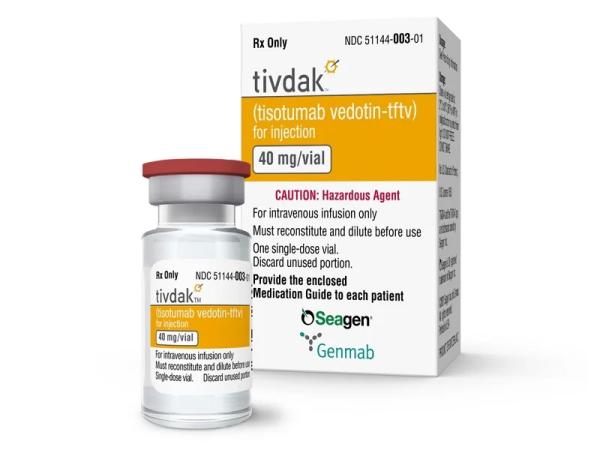Tisotumab vedotin Disease Interactions
There are 3 disease interactions with tisotumab vedotin.
Tisotumab vedotin (applies to tisotumab vedotin) hepatic impairment
Moderate Potential Hazard, Moderate plausibility. Applicable conditions: Liver Disease
Avoid the use of tisotumab vedotin in patients with moderate or severe hepatic impairment.
References (1)
- (2021) "Product Information. Tivdak (tisotumab vedotin)." Seagen Inc
Tisotumab vedotin (applies to tisotumab vedotin) ocular toxicity
Moderate Potential Hazard, Moderate plausibility. Applicable conditions: Visual Defect/Disturbance
Ocular adverse events are very common in patients receiving treatment with tisotumab vedotin. Patients with baseline visual disturbances should be monitored and if any symptoms worsen should be evaluated promptly by an eye care provider. Reduce dosage, withhold or permanently discontinue treatment based on the severity of the symptoms.
References (1)
- (2021) "Product Information. Tivdak (tisotumab vedotin)." Seagen Inc
Tisotumab vedotin (applies to tisotumab vedotin) peripheral neuropathy
Moderate Potential Hazard, Moderate plausibility.
Patients receiving treatment with tisotumab vedotin may have peripheral neuropathy adverse reactions. Patients with preexisting peripheral neuropathy should be monitored. Reduce dosage, withhold, or permanently discontinue treatment based on the severity of symptoms.
References (1)
- (2021) "Product Information. Tivdak (tisotumab vedotin)." Seagen Inc
Switch to consumer interaction data
Tisotumab vedotin drug interactions
There are 328 drug interactions with tisotumab vedotin.
More about tisotumab vedotin
- tisotumab vedotin consumer information
- Check interactions
- Compare alternatives
- Side effects
- Dosage information
- During pregnancy
- Drug class: miscellaneous antineoplastics
- Breastfeeding
- En español
Related treatment guides
Drug Interaction Classification
| Highly clinically significant. Avoid combinations; the risk of the interaction outweighs the benefit. | |
| Moderately clinically significant. Usually avoid combinations; use it only under special circumstances. | |
| Minimally clinically significant. Minimize risk; assess risk and consider an alternative drug, take steps to circumvent the interaction risk and/or institute a monitoring plan. | |
| No interaction information available. |
See also:
Further information
Always consult your healthcare provider to ensure the information displayed on this page applies to your personal circumstances.


